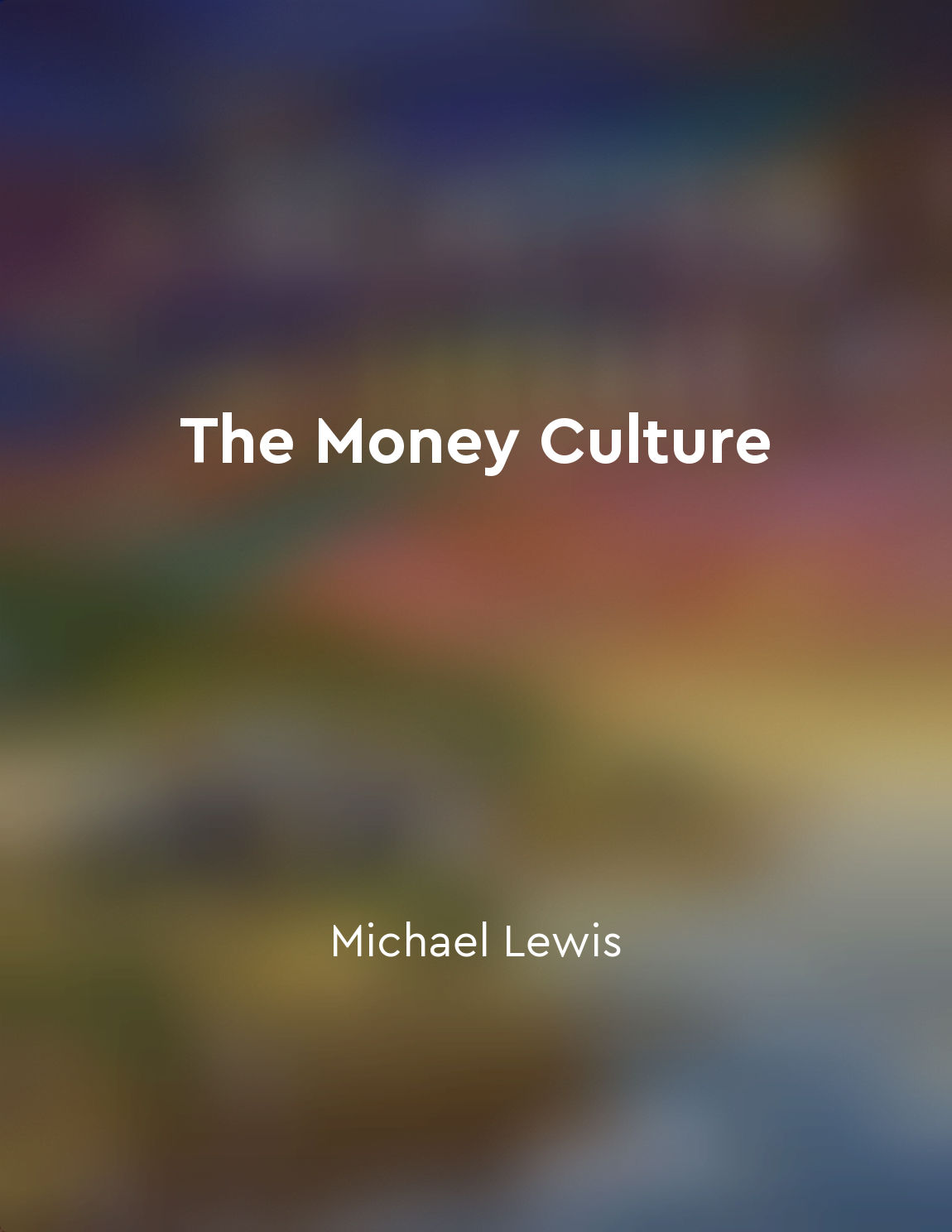Speculation drives asset bubbles from "summary" of The Money Culture by Michael Lewis
In the financial world, there exists a phenomenon where speculation plays a significant role in driving asset bubbles. These bubbles are essentially market distortions that occur when the price of an asset becomes disconnected from its intrinsic value. Speculators are individuals who enter the market with the sole purpose of making a profit by buying and selling assets at opportune times. When speculation intensifies in a particular market, it can create a self-fulfilling prophecy. As more speculators enter the market, the demand for the asset increases, driving up its price. This increase in price can attract even more speculators who are drawn to the prospect of making quick profits. In this way, speculation fuels a cycle of rising prices that can eventually lead to an asset bubble. Asset bubbles are characterized by irrational exuberance, where investors become overly optimistic about the future prospects of an asset. This optimism can lead to a feedback loop where rising prices seem to justify further price increases. However, this upward trend is not sustainable in the long run, as it is not supported by the underlying fundamentals of the asset. When the bubble eventually bursts, it can have devastating consequences for investors who bought into the hype at inflated prices. This can lead to significant losses and market turmoil as prices plummet back down to more realistic levels. The aftermath of a burst bubble serves as a stark reminder of the dangers of speculation and the importance of maintaining a rational approach to investing.- Speculation can be a driving force behind asset bubbles, as it can distort market prices and create unsustainable trends. It is essential for investors to exercise caution and diligence when participating in markets where speculation is rampant, as the repercussions of a burst bubble can be severe.


